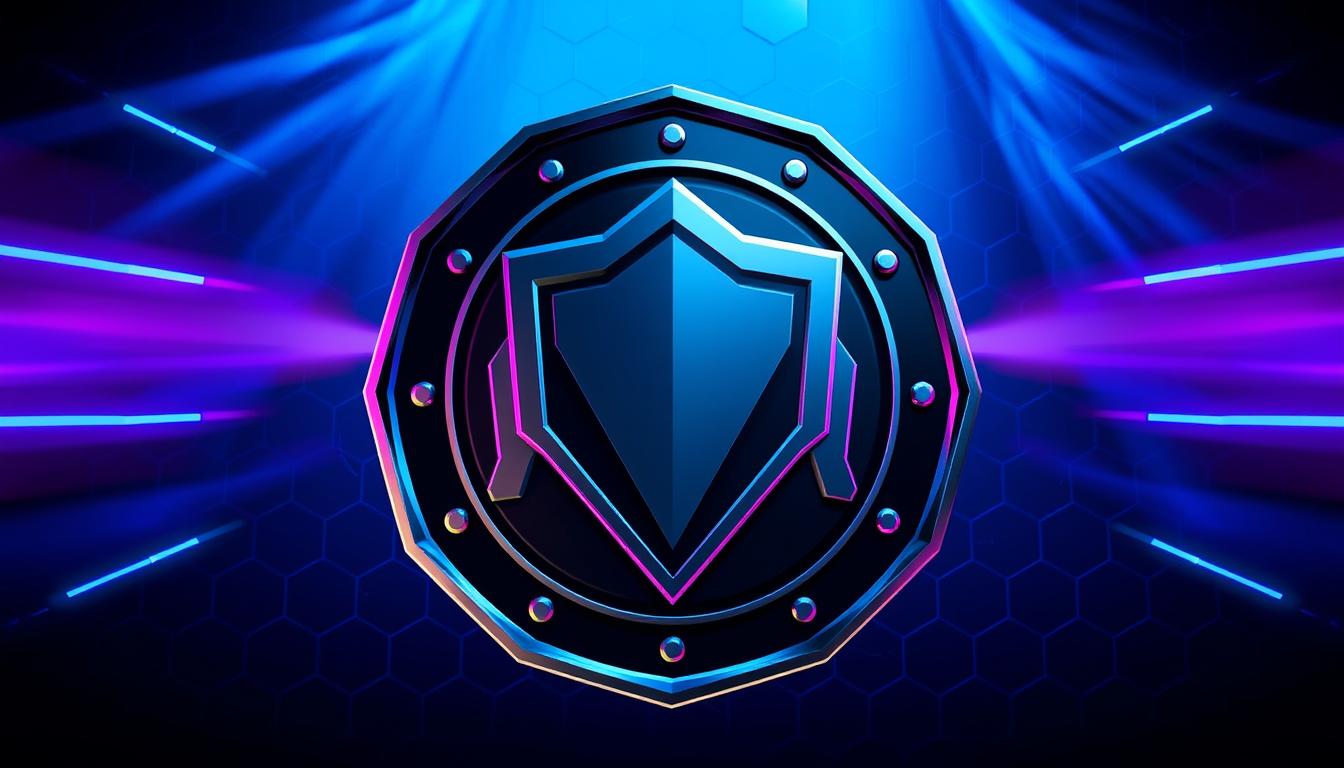The demand for skilled cybersecurity professionals is skyrocketing as companies increasingly prioritize protecting themselves against cyber threats. With the rise in cyberattacks, the need for reliable security experts has never been more pressing.
As a result, certifications from reputable bodies have become a crucial factor in identifying top talent. But what makes certain cybersecurity certifications stand out, and how can they impact your career?
You’ll be exploring the most challenging certifications in the industry, including what makes them so demanding and how they can significantly boost your career prospects and earning potential.
Key Takeaways
- Discover the most challenging cybersecurity certifications and their benefits.
- Learn how these certifications can enhance your career prospects.
- Understand the specific knowledge domains and skill sets required.
- Explore the exam formats and preparation pathways for top certifications.
- Determine which certification path aligns best with your career goals.
The Value of Cybersecurity Certifications in Today’s Market
The value of cybersecurity certifications in today’s market cannot be overstated, as they serve as a benchmark for industry professionals. As cyber threats continue to evolve, the demand for skilled security professionals has increased, making certifications a crucial factor in career advancement.
Cybersecurity certifications not only validate your expertise but also demonstrate your commitment to staying up-to-date with the latest technologies and threats. This, in turn, enhances your credibility in the eyes of potential employers and clients.
Career Advancement and Salary Benefits
Obtaining recognized certifications can significantly boost your career prospects and salary potential. Certain certifications, such as CISSP, have become de facto requirements for senior security positions and government roles. By acquiring these certifications, you can position yourself for career advancement and increased earning potential.
Industry Recognition and Credibility
Cybersecurity certifications also play a crucial role in establishing your reputation as a trusted professional in the industry. By maintaining certifications through continuing education requirements, you demonstrate your commitment to staying current with evolving threats and technologies, further enhancing your credibility.
Understanding the Cybersecurity Certification Landscape
As you consider advancing your career in cybersecurity, understanding the different certification options available is essential. The cybersecurity certification landscape is complex, with various certifications catering to different skill levels and career goals.
Entry-Level vs. Advanced Certifications
Cybersecurity certifications can be broadly categorized into entry-level and advanced certifications. Entry-level certifications, such as CompTIA Security+, provide a foundational understanding of security concepts and principles. Advanced certifications, like the CISSP, validate expertise and knowledge in specific areas of cybersecurity.
Entry-level certifications are ideal for those new to the field, offering a comprehensive introduction to security fundamentals. In contrast, advanced certifications are designed for experienced professionals looking to demonstrate their expertise and commitment to the field.
Vendor-Specific vs. Vendor-Neutral Options
Another crucial distinction lies in vendor-specific and vendor-neutral certifications. Vendor-specific certifications, such as Cisco’s CCNA, focus on particular technologies and platforms, demonstrating specialized expertise. Vendor-neutral certifications, like those offered by CompTIA and (ISC)², validate broad security principles and knowledge.
- Vendor-neutral certifications provide transferable knowledge relevant across various technologies and platforms.
- Vendor-specific certifications demonstrate specialized skills, making you valuable to organizations invested in those ecosystems.
- Combining both types creates a powerful resume showcasing both foundational security principles and specialized technical skills.
CISSP: The Gold Standard of Security Certifications

The Certified Information Systems Security Professional (CISSP) certification is widely regarded as a benchmark of excellence in the cybersecurity industry. It’s a credential that not only validates your expertise in information security but also demonstrates your ability to design and implement secure systems.
Exam Structure and Domains
The CISSP exam is comprehensive, covering a broad range of topics related to information security. It’s structured around eight domains, including security and risk management, asset security, and software development security, among others. This wide scope means that candidates must have a broad knowledge base to pass the exam.
Experience Requirements and Endorsement Process
To become a CISSP, you must have a minimum of five years of full-time work experience in at least two of the eight domains covered by the exam. The experience requirement ensures that CISSP holders have practical, hands-on experience in information security. After passing the exam, you’ll need to get endorsed by an (ISC)² certified professional to complete the certification process.
Why CISSP is Considered Challenging
The CISSP certification is considered challenging due to its comprehensive nature and the depth of knowledge required. The exam tests not just your technical knowledge but also your ability to think like a security manager. You’ll face questions with multiple “correct” answers, requiring you to choose the “most correct” one based on (ISC)²’s best practices. Maintaining the certification also requires ongoing commitment, including 120 Continuing Professional Education (CPE) credits every three years and annual membership fees.
Offensive Security Certified Professional (OSCP)
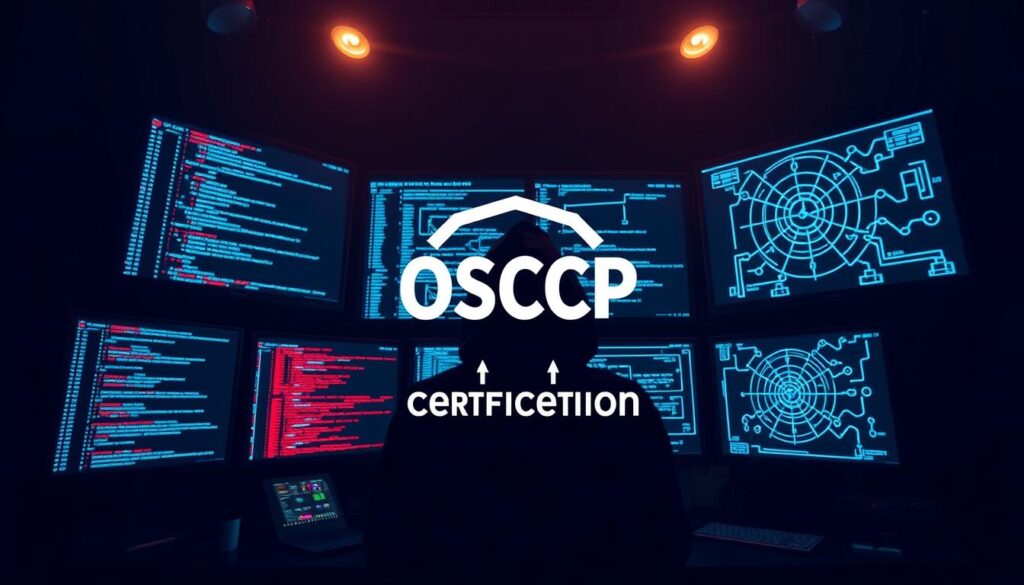
The Offensive Security Certified Professional (OSCP) certification is a challenging credential that validates your hands-on security skills. It’s designed for professionals with established careers in information security who want to demonstrate their ability to perform real-world penetration testing.
The 24-Hour Practical Exam Challenge
The OSCP certification exam is a grueling 24-hour practical test that pushes your skills to the limit. You’ll be required to exploit multiple vulnerabilities, escalate privileges, and gain access to sensitive areas of a network.
This intense exam simulates real-world penetration testing scenarios, ensuring that you’re not just memorizing concepts, but can actually apply your knowledge in a practical setting.
Hands-On Skills vs. Theoretical Knowledge
What sets the OSCP apart from other security certifications is its focus on hands-on skills rather than theoretical knowledge. Employers highly value OSCP-certified professionals because they can demonstrate their ability to perform actual penetration testing and testing.
The certification validates your expertise in areas such as reconnaissance, vulnerability identification, exploitation, and post-exploitation techniques, making you a valuable asset to any organization.
CCIE Security: Cisco’s Elite Certification

Cisco’s CCIE Security certification is considered one of the most prestigious credentials in the cybersecurity industry. It validates your ability to design, implement, and troubleshoot complex security infrastructures.
To achieve this elite status, you must undergo a rigorous certification process that tests your hands-on skills and knowledge of Cisco security technologies.
The Rigorous 8-Hour Lab Exam
The CCIE Security certification involves a two-part examination process. First, you must pass the 2-hour written exam, Implementing and Operating Cisco Security Core Technologies (SCOR 350-701). Then, you’ll face the challenging 8-hour lab exam that puts your practical skills to the test.
The lab exam simulates real-world security scenarios, requiring you to configure and troubleshoot complex security solutions within a limited timeframe.
Prerequisites and Preparation Path
To successfully obtain the CCIE Security certification, you typically start with the CCNA certification, progress through CCNP Security, and culminate with the CCIE Security exams. Most successful candidates possess 3-5 years of professional experience with Cisco security technologies.
Comprehensive preparation resources are available, including official Cisco learning materials, lab practice environments, and specialized CCIE training programs. Candidates usually spend 12-18 months preparing and invest significant time and financial resources in study materials and practice labs.
Other Challenging Cybersecurity Certifications
The cybersecurity landscape is dotted with certifications that test the mettle of even the most experienced security practitioners. These certifications are not just about validating knowledge; they’re about demonstrating the ability to apply that knowledge in complex, real-world scenarios.
CASP+ (CompTIA Advanced Security Practitioner)
The CompTIA Advanced Security Practitioner (CASP+) certification is designed for advanced-level cybersecurity professionals. It validates the ability to implement and manage cybersecurity solutions across various domains, including enterprise security operations and incident response.
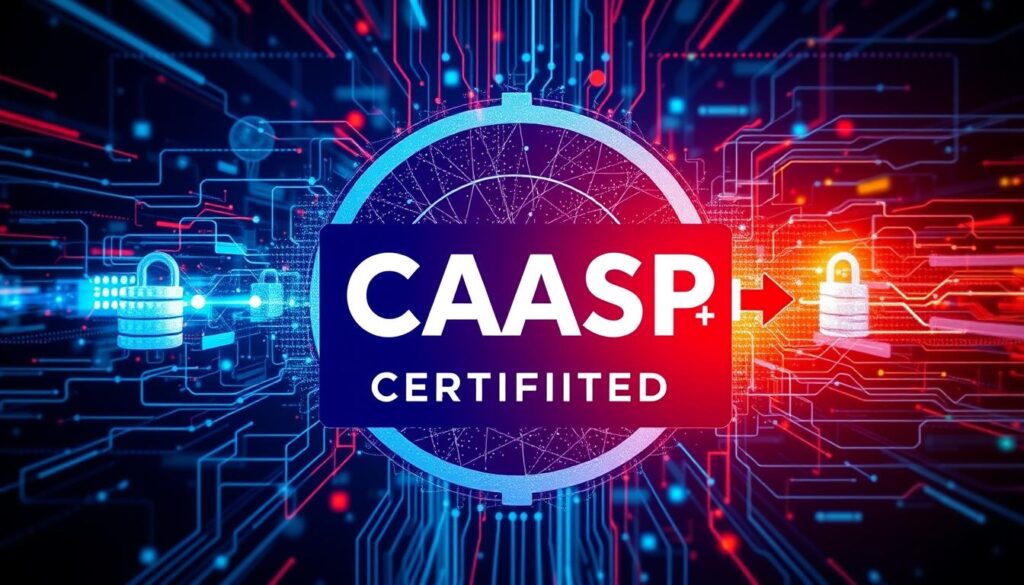
CISM (Certified Information Security Manager)
The CISM certification is geared towards professionals who manage, design, and oversee an organization’s information security program. It focuses on information security governance, risk management, and incident management. To become CISM certified, candidates must meet specific experience requirements and pass the CISM exam.
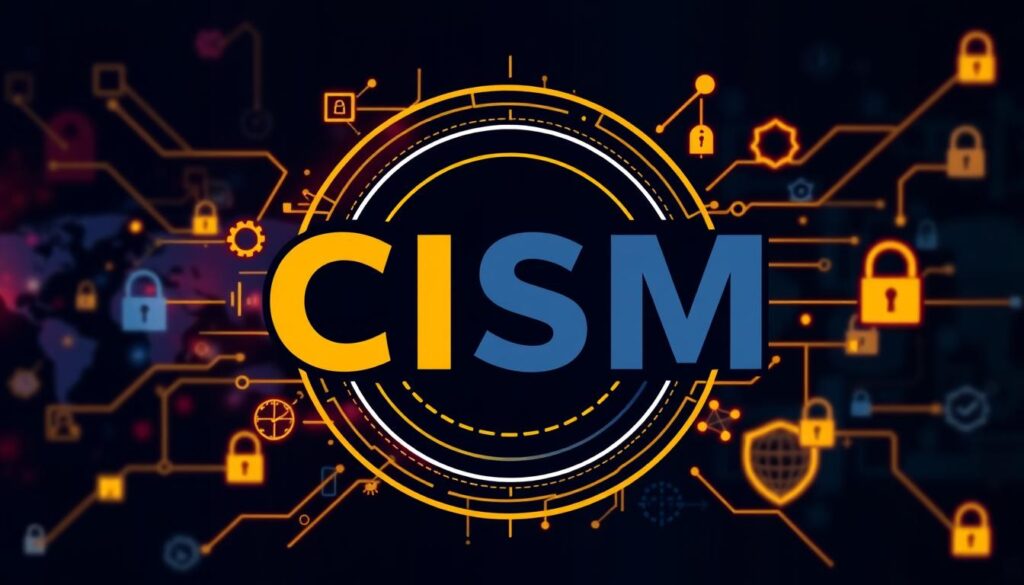
AWS Certified Security – Specialty
The AWS Certified Security – Specialty certification is designed for individuals who demonstrate expertise in securing AWS environments. This certification validates the ability to design and implement secure AWS architectures, ensuring the confidentiality, integrity, and availability of data.
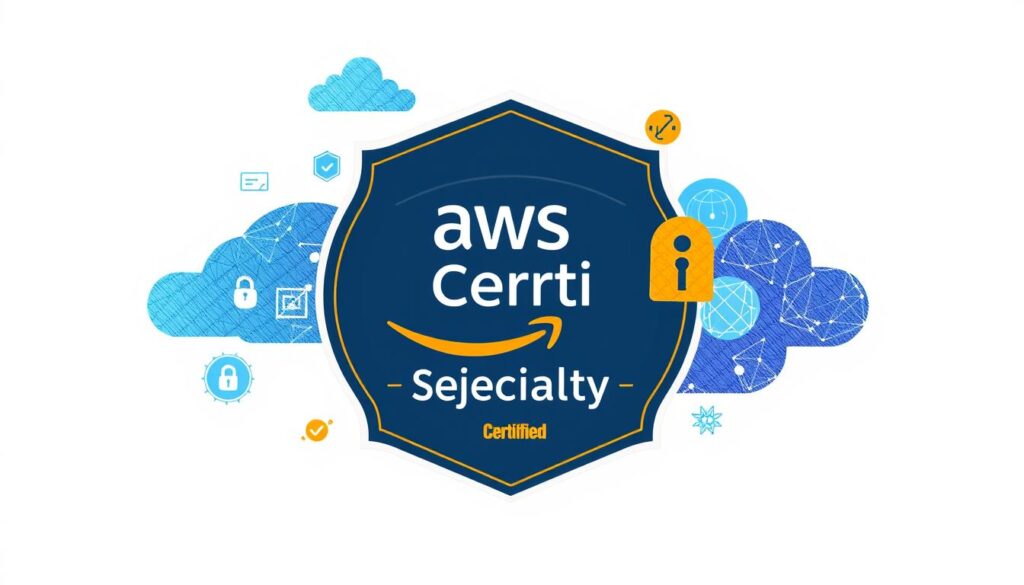
GIAC Certifications (GPEN, GMON)
GIAC certifications, such as GPEN (GIAC Penetration Tester) and GMON (GIAC Continuous Monitoring), focus on specific technical security skills. GPEN validates the ability to conduct penetration tests and exploit vulnerabilities, while GMON focuses on detecting and responding to network intrusions through advanced monitoring techniques.
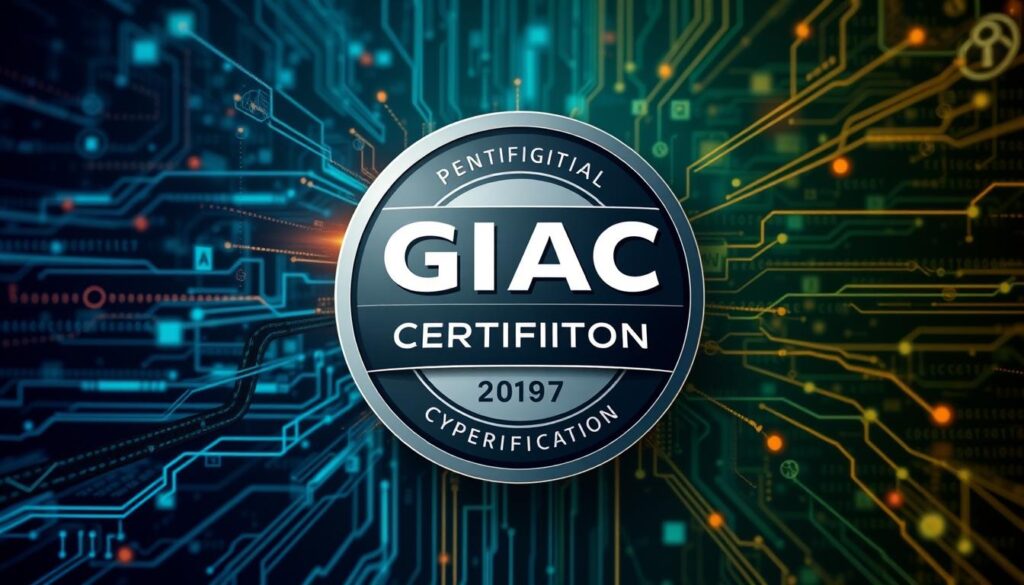
Toughest Cybersecurity Certifications Decoded: What Makes Them Difficult

The most challenging cybersecurity certifications are not for the faint of heart, requiring a deep understanding of security principles and practices. To attain these prestigious certifications, you must demonstrate not only a strong foundation in cybersecurity but also a significant amount of practical experience.
Technical Depth and Breadth Requirements are a hallmark of these challenging certifications. For instance, the CISSP exam covers a broad range of security domains, from security and risk management to software development security. Professionals aiming for such certifications must possess a comprehensive understanding of various security concepts and practices.
Technical Depth and Breadth Requirements
You’ll need to have a thorough grasp of security principles, including risk management, vulnerability assessment, and security protocols. The technical depth required for certifications like CISSP or CCIE Security means that you must be well-versed in the latest security technologies and methodologies.
- Understand security frameworks and compliance regulations.
- Demonstrate knowledge of threat analysis and risk mitigation strategies.
- Show proficiency in implementing security measures across various platforms.
Experience Prerequisites and Time Commitments
To take the CISSP exam, for example, you must prove that you have worked for at least five years as a security professional. This experience prerequisite ensures that only those with substantial hands-on experience can achieve the certification. Additionally, the time commitment for preparation is significant, often requiring 6-12 months of dedicated study.
- Many certifications demand 5+ years of experience in specific security domains.
- Preparation time can be substantial, with professionals often spending months studying.
- The financial investment includes exam fees, training materials, and potentially instructor-led courses.
Preparation Strategies for Challenging Security Certifications

To conquer the toughest cybersecurity certifications, you need a well-planned preparation strategy. Effective preparation not only enhances your knowledge but also boosts your confidence, ensuring you’re well-equipped to pass the exam.
The preparation timeline for cybersecurity certification varies significantly based on the level of the certification and your prior experience. For instance, entry-level certifications like Security+ may require 2-4 months of study, while advanced certifications like CISSP can demand 6-9 months of dedicated preparation.
Study Resources and Training Options
Selecting the right study resources and training options is crucial for effective preparation. You can choose from a variety of courses, including online classes, study groups, and self-paced learning materials. It’s essential to pick resources that align with your learning style and the specific requirements of the exam you’re preparing for.
Practice Labs and Hands-On Experience
Hands-on experience through practice labs is invaluable for certifications that require practical skills. This experiential learning helps you apply theoretical knowledge to real-world scenarios, ensuring you’re better prepared for the actual exam. Practice labs simulate the exam environment, helping you identify areas where you need to focus your study efforts.
Time Management and Exam Strategies
Effective time management is critical both during your preparation phase and on the day of the exam. Creating a realistic study schedule that fits around your work and personal commitments is key. Additionally, learning strategies for managing your time during the exam, such as pacing techniques and question prioritization, can significantly improve your chances of success and help you achieve a minimum required score.
Conclusion: Choosing the Right Certification Path
As you navigate the complex landscape of cybersecurity certifications, it’s crucial to choose a path that aligns with your career aspirations. Different certifications can open different doors, so consider where you want your cybersecurity career to take you.
If you’re just starting out or changing careers, beginning with CompTIA Security+ and then pursuing specialized certifications like CompTIA PenTest+ can be a strategic move. You’ll need to create a personalized certification roadmap that aligns with your goals, experience, and interests.
To maximize your success, balance certification pursuits with gaining practical experience. Evaluate the return on investment for different certifications based on your career path, and remember that certifications are just one part of a broader professional development strategy.
FAQ
What is the minimum experience required for CISSP certification?
To be eligible for CISSP certification, you must have a minimum of five years of full-time security experience in at least two of the eight domains of the CISSP Common Body of Knowledge (CBK).
How challenging is the OSCP certification exam?
The OSCP certification exam is considered highly challenging due to its 24-hour practical exam format, which requires you to demonstrate hands-on skills in penetration testing and vulnerability exploitation.
What are the prerequisites for CCIE Security certification?
To become CCIE Security certified, you must first have a valid CCNP Security or CCIE Routing and Switching certification, and then pass the CCIE Security written and lab exams.
How does CASP+ differ from other security certifications?
CASP+ is a vendor-neutral certification that validates your advanced security skills and knowledge, focusing on risk management, enterprise security operations, and incident response.
What is the focus of the CISM certification?
CISM certification is designed for professionals who manage, design, and oversee an enterprise’s information security, focusing on information security governance, risk management, and incident management.
Are there any specific training or study resources recommended for these certifications?
Yes, various training providers, such as (ISC)², CompTIA, and Cisco, offer official study materials, courses, and practice labs to help you prepare for these challenging security certifications.
How long does it take to prepare for these certifications?
The preparation time varies depending on your background, experience, and the certification you’re pursuing, but it typically ranges from several months to a year or more.
What are the benefits of obtaining these certifications?
Obtaining these certifications can significantly enhance your career prospects, salary potential, and industry recognition, demonstrating your expertise and commitment to the field of information security.
